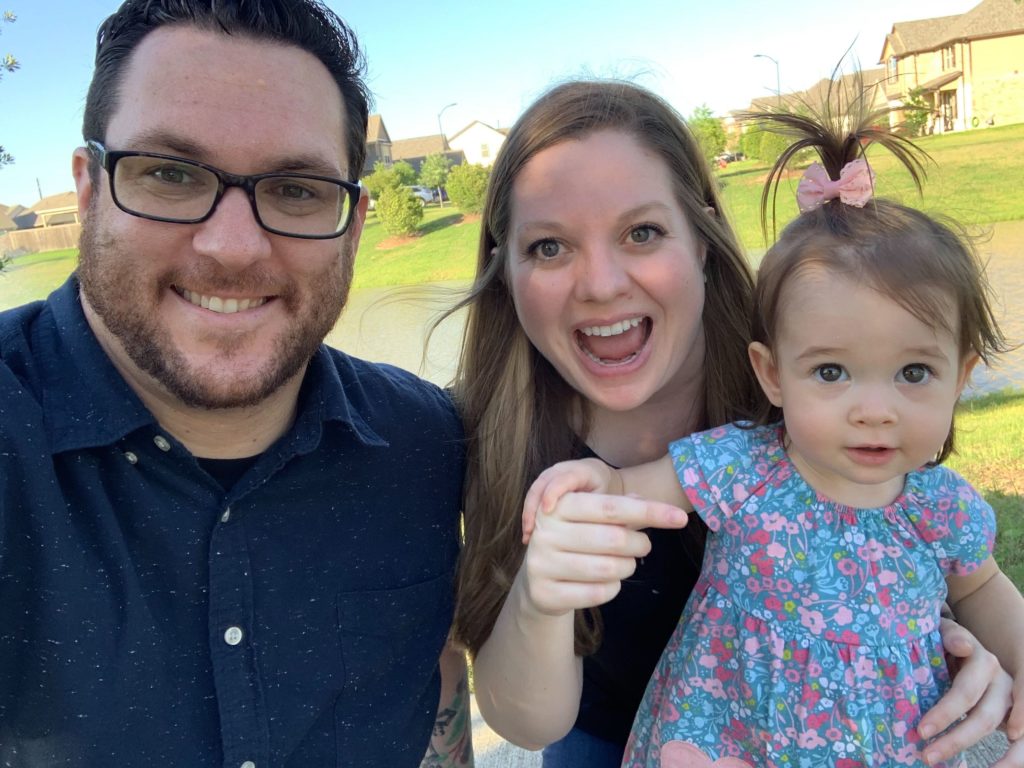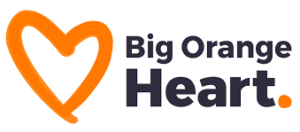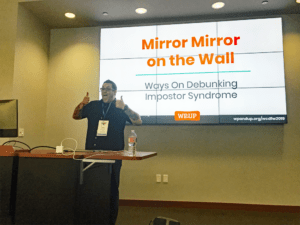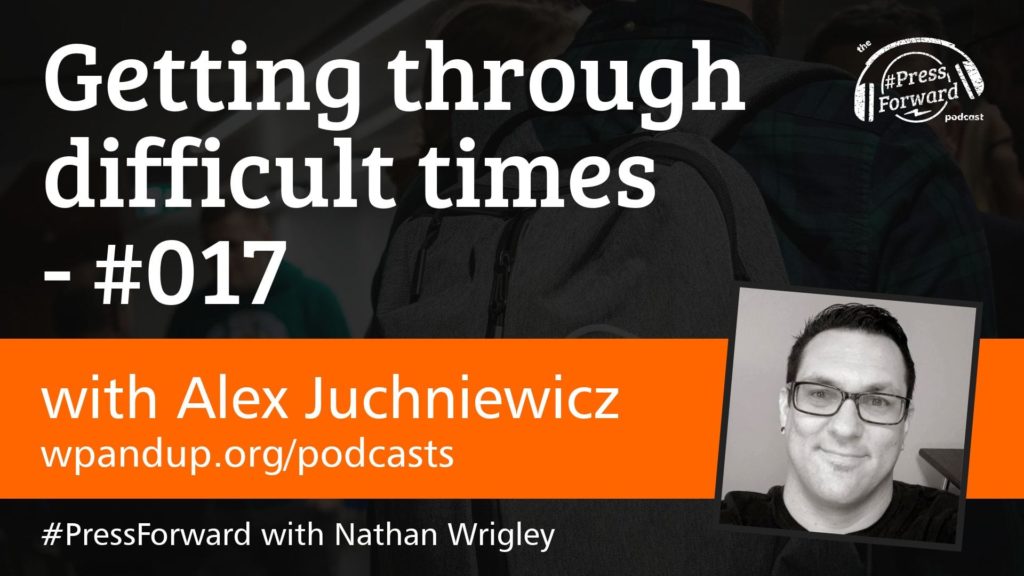What’s going on?
We’re now in June of 2020, and so much has changed since the beginning of this year. It’s been one of the most impactful seasons on companies and individuals as the transition from an office setting to working from home has become the norm. If you remember back in March, Twitter stepped out and made the decision to offer working from home available to their entire company, providing a huge benefit of flexibility to team members. With large companies making this more available as a perk, what does this mean for our mental health and remote work?
Here are some of the pros and cons of remote work that relate to mental health:
Pros
- Little or no commute time
- Flexible schedule
- Save money
- Personal work environment
- More accessible
- More independence
- Less expenses
- Increased productivity
- Improved technical skills
- Improved communication skills
- More work flexibility
- No office distractions
- Collaborate across locations
- Build professional networks
- Company perks and benefits
- Reduction in work absences
- Increased satisfaction
- Provides more job opportunities
- Provides work-life balance
Cons
- Increased isolation
- Managing your own schedule
- Hindered communication
- Home office costs
- Risk of overworking
- Risk to productivity
- Distractions at home
- Workplace disconnect
- Disproportionate work-life balance
- Less face time
- Burnout
Why is mental health important?
 With so many things that distract us from our daily life, our mental health sits as part of the core of our well-being. It’s a crucial element that we often allow to be compromised, not well maintained, and struggle with being proactive on educating ourselves on how to improve it.
With so many things that distract us from our daily life, our mental health sits as part of the core of our well-being. It’s a crucial element that we often allow to be compromised, not well maintained, and struggle with being proactive on educating ourselves on how to improve it.
Mental health is made up of our emotions, psychological state, and how we view our social status. It touches every aspect of our life on how we think, feel, and act. It helps us decide on how we make decisions, handle stress, and interact with others. When we have positive mental health it can allow people to understand their full potential, cope better with stress, work more productively, and become more involved and contribute in communities.
In 2019, a survey was conducted from over 4,500 developers on their experience working remote by Digitial Ocean, a cloud infrastructure company. They found that 82% of tech workers who were remote in the US felt burnt out, while 52% reported that they work longer hours than people working in an office setting, and 40% feeling pressure to contribute more than their in-office friends.
This year Buffer, a social media engagement tool, teamed up with Angel List and completed putting together data from 3,500 remote workers from around the world to explore the benefits and struggles of remote work. The results were very interesting, here are a few of the questions that were in the survey and the top results.
Question: Which of the following statements best describes you?
- 70% – I am happy with the amount of time I work remotely.
- 19% – I would like to work remotely more often.
- 11% – I would like to work remotely less often.
Question: What’s your biggest struggle with working remotely?
- 20% – Collaboration and communication
- 20% – Loneliness
- 18% – Not being able to unplug
- 12% – Distractions at home
- 10% – Being in a difficult time zone than teammates
- 7% – Staying motivated
- 5% – Taking vacation time
- 3% – Finding other reliable
- 5% – Other
Question: What location do you primarily work from?
- 80% Home
- 9% Company’s office
- 7% Coworking spaces
- 3% Coffee shops
- 0.5% Libraries
- 0.5% Other
Question: Would you like to work remotely, at least some of the time, for the rest of your career?
- 98% – Yes
- 2% – No
It seems that people that currently work remote enjoy it and find it to be a great benefit and experience for their profession. However, there is still a large number that find it to be isolating and desire to have more communication and community interaction for a change of pace and break for their current work remote environments.
I feel that mental health is something that should continue to be talked about openly and companies should continue to provide resources for their team members relating to their physical and mental health. Our industry is only going to grow and more people will be making the transition from the office to a distributed working environment. It will be more crucial than ever for the proper support and structure to be in place to provide a healthy work space for remote workers. Being part of a remote team myself, I can only share my experiences on how vital it is to have people around you that care and want you to succeed personally and professionally.
My Story
Please know that I am not a mental health professional. I am only sharing from personal experience. If you need help, contact your doctor or mental health counselor.
Over the past 12 years, I’ve experienced some hard times and learned things about myself that have not only changed my life, but have allowed me to put myself in a position to help others.I was 19 when my parents divorced, and I moved out since I didn’t want to pick who to live with. Moving to a nearby college city, I started a new life for myself while working at a local technology company doing quality assurance and manual regression testing. Little did I know that would snowball into years of struggling with abandonment, trust, aggression, and pain.
I’ve worked remotely for the past six years and I can honestly say I don’t ever want to go back to working in a traditional office environment. Throughout that time, with the help of counseling, medication, my personal beliefs, and community, I’ve been able to stabilize myself and be a person who I am happy with. I still continue to learn, educate myself, and look for opportunities where I can serve others who might need someone to talk to.
The biggest mental health issues I’ve dealt with are depression, aggression, and abandonment.
In 2017, I took a psychoanalyst test that helped me determine why I was struggling with depression, anger, and abandonment. This was having a huge impact not only on my marriage but my job as well. The test was a list of 700 questions that provided results on how I approach different situations, my thought process, as well as a written report. The report showed that a lot of my trauma was sourced directly after my parents divorce. It explained in detail how and why my depression and anger wove itself into my behavior. It gave insight on why I feared abandonment within my own marriage from my wife.
So how did I deal with all of this? Over the years from my experiences, I started to apply the things I learned from counseling, knowing it’s okay to take medicine if it helps, and creating slow changes with my routine and communication style.
I am a pretty emotional guy by nature, but after I was married, there was a lot of pain and hurt that came out which was suppressed when I was single. I noticed that I became a different person and didn’t like that. I did years of counseling and tried different medications until early 2018. I found what worked for me and have been on that ever since.
I’m now the proud father of a beautiful 18-month-old and have one on the way due in November. My marriage and work environment are in a fantastic place and I am involved in several online and local communities where I have a supportive group of people who care and love on me. I am beyond blessed to have that.

Something else that has been a new change for me this year has been working out to start my day off in the right mindset and eating better. I started noticing that the days I’m not active and eat like garbage, I am not as productive at work. I joined an online workout group where each weekday we join a Zoom call at 6:15 a.m. and work out for 30-40 minutes.
We talk about our wins and how we can be encouraging one another. It’s been a game changer for me since I never thought I would wake up at 5:30 a.m. every day to work out. After I work out, I sit in my big chair in my office and read for about 20-30 minutes to feed my mind. Then I shower, make breakfast, and start my workday.
My journey with mental health has been over the span of many years; everyone might have a different timeline, and that’s okay! The important thing is that you take the time to understand how it’s impacting you, and no one else.
Let me share with you a charity I found out about last year that is something I am passionate about.
Big Orange Heart
Background
 Originally named WP&UP, Big Orange Heart (BOH) is positioned to support remote workers in the global web development community. The board and volunteers of BOH understand the challenges, highs, and lows of remote working and how it can affect mental health and physical well-being, and endeavor to support others in the same working situation.
Originally named WP&UP, Big Orange Heart (BOH) is positioned to support remote workers in the global web development community. The board and volunteers of BOH understand the challenges, highs, and lows of remote working and how it can affect mental health and physical well-being, and endeavor to support others in the same working situation.
Given the current impact of the COVID-19 pandemic and how it will continue to have an enormous and potentially permanent shift within the remote working community, WP&UP took the necessary steps to pivot the charity to allow for a higher level of support and exposure from a much wider audience, hence the re-branding to Big Orange Heart.
How I got involved.
In the summer of 2019, I came across the Press Forward Podcast which was produced and published by WP&UP. I didn’t know much about the charity at that time but I had been seeing it all over Facebook and had been waiting to find an outlet I could get involved with around helping out others.
I joined the Slack community and started asking around how I can get involved. I started chatting with Nathan Wrigley who was in charge of the podcast. After getting to know me and sharing some of my past, he invited me to share my story on the Press Forward Podcast, which I gladly accepted. Please click here to hear my personal story about my struggles and victories with mental health.
Why I got involved.
 After my interview with Nathan, I asked him how I could volunteer and become involved with the charity. I had an amazing time sharing my story, I wanted to use my experiences and background to help people anywhere I could.
After my interview with Nathan, I asked him how I could volunteer and become involved with the charity. I had an amazing time sharing my story, I wanted to use my experiences and background to help people anywhere I could.
My role involves being on the volunteer partnerships team at BOH where I talk to companies about the mission of supporting and promoting positive mental health within the WordPress community. I’ve always had a passion for people, relationships, and being open about my story dealing with mental health and how I have navigated it.
I also have spoken at WordCamps on mental health and enjoy having conversations with WordCamp attendees and hearing their experiences around mental health. Some of the best conversations have been when I have least expected it. It’s those moments where you create a connection with someone that is impactful for both people.
How you can benefit from BOH.
 Remote working has the potential for increased isolation, loneliness, anxiety, depression, and other related mental health issues. Big Orange Heart exists, “To support and promote positive mental health within the WordPress community.” To achieve this, the organization hosts live and virtual events and produces a weekly podcast covering a variety of well-being related topics.
Remote working has the potential for increased isolation, loneliness, anxiety, depression, and other related mental health issues. Big Orange Heart exists, “To support and promote positive mental health within the WordPress community.” To achieve this, the organization hosts live and virtual events and produces a weekly podcast covering a variety of well-being related topics.
In addition, BOH operates a live chat support service, monitored by a team of trained volunteers. They also have an active peer-to-peer support community online, which matches up volunteer companions with those who need someone, and enable small groups of peers to meet up and help one another. The group works to reduce social isolation, promote well-being, and bring down barriers relating to mental health.
If you find you want to help, volunteers are always welcome, from writers to fundraisers, to simply sharing the articles which spread the message that Big Orange Heart is there for you.
Tips for Staying Mentally Healthy While Working from Home
- Take regular breaks, setting an alarm to remind you.
- Remember (consider setting reminders) to eat well, to drink, to get up and move about. It’s easy to forget these things at times.
- You don’t need to be alone. There are communities for you that will help with loneliness and isolation. Join them. You don’t have to join in, if you’d rather not, but being there with other people, if only virtually, can feel less alone.
- Keep moving. Take a walk each day, or a run, or whatever you can do. Keep doing it. It’s very easy to get into your work and find many hours have passed sitting at your computer, and that’s not ideal for your body or your mind.
- Try to find some space for yourself. This may not be easy with a family at home, too, but even if you have to put on the headphones and be firm with others that this is your work time, and be firm about this yourself, you’ll likely get more work done. But also take some time to unwind, perhaps when your work is complete, or before you start. Give yourself time for your mind to adjust from one mode to another.
Since the beginning, WebDevStudios has operated as a 100% distributed company. We know remote work. For more information and tips on working from home, please read our collection of remote work blog posts.

Comments